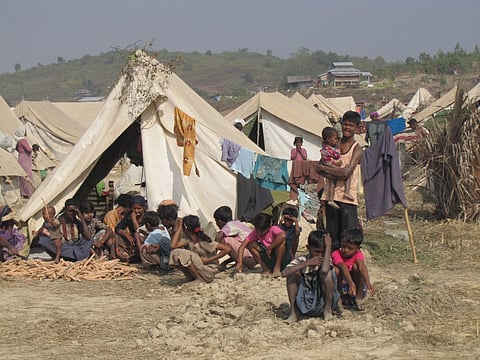Statelessness and Rohingya rights
(This article is part of our special package on Myanmar. Read more articles here.)
Citizenship is man's basic right, for it is nothing less than the right to have rights. Remove this priceless possession and there remains a stateless person, disgraced and degraded in the eyes of his countrymen.
– US Supreme Court Chief Justice Earl Warren
Written in 1958, Chief Justice Earl Warren's observation rings true for more than a million Rohingya of Myanmar, stripped of their citizenship, rendered stateless, and subjected to grave human rights violations. Cases of documented abuse were so severe that in 2015, a study by the Yale International Human Rights Law Clinic found that there was enough evidence to suggest that the Rohingya are victims of an on-going genocide. The deprivation of citizenship has barred Rohingya of legal representation or redress, with even the most public interest-minded lawyers fearful of attracting the reprisal of Myanmar's Buddhist nationalists. This legal impunity has permitted the proliferation of forced population transfers, land confiscation, and apartheid-like conditions, forcing many Rohingyas into squalid camps for internally displaced people (IDPs), without adequate access to healthcare, education, and livelihood opportunities. Acts of sexual violence, torture, or killings go uninvestigated and unpunished in such a climate of impunity and, in turn, such conditions lead to inter-generational, psychological and social trauma. In the meantime, the destruction of mosques continues all over the country.
Without citizenship, the Rohingya are denied the freedom of movement, which further prevents access to adequate healthcare, education and employment, trapping many families into cycles of dependency on human smugglers or worse. In recent years, several national laws have been passed in Myanmar – restrictions on the number of children Rohingya families may have; strict control on religious freedoms; and regulation of religious conversions. There are severe fines and jail sentences for violations.

